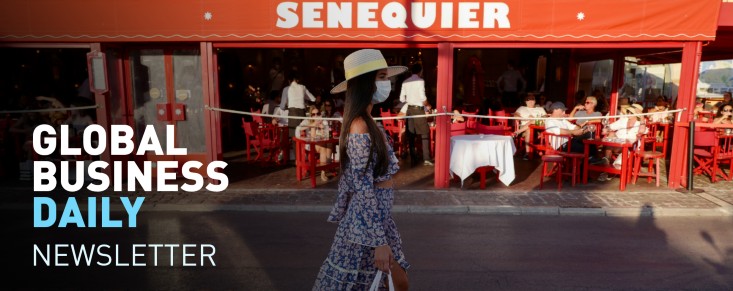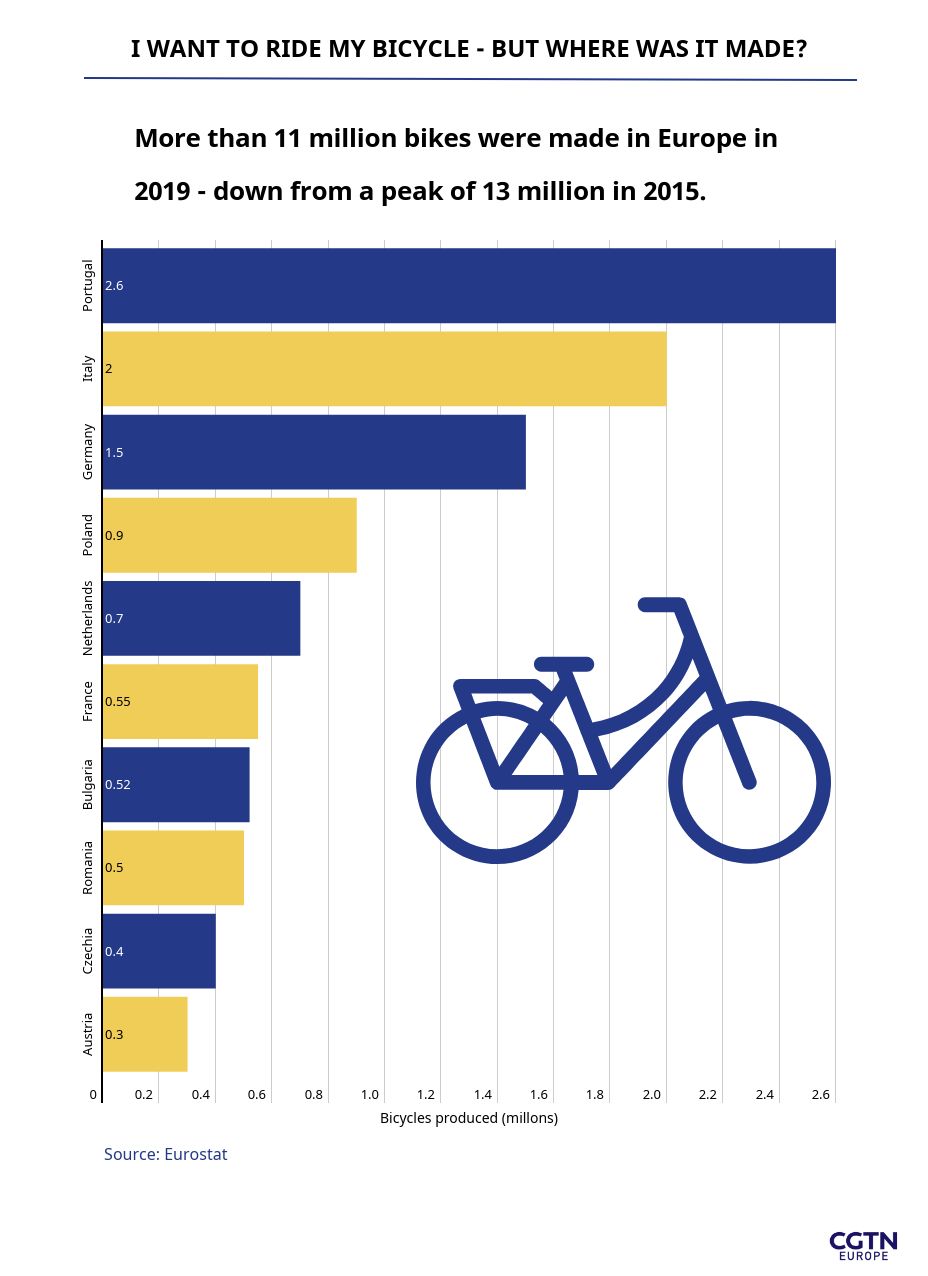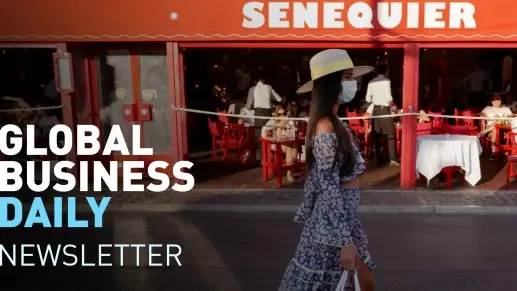"It... seems inexplicably slow."
That's the view of Karen Betts, the CEO of the Scotch Whisky Association , reacting to the news that although the U.S. will not raise the tariffs on European goods it imposed last year, it won't cut them either.
Whisky was one of the most valuable British products on the list and Betts was clearly hoping the UK's trade minister, Liz Truss, would accelerate talks to remove the levy. Alas, it seems the man in charge of trade negotiations in the U.S., Bob Lighthizer is more of a bourbon man.
It's been another hectic day of company results, with TUI posting more than a billion dollars in losses, while PC maker Lenovo recorded 31 percent growth.
In electric vehicle news, there's an update from the firm named after the Serbian who helped harness the alternating current. No, not Tesla… the other one, Nikola. if you want to learn more about electric trucks,
listen to this episode of our RAZOR Podcast
, where we look at an effort to decarbonize Europe's transport system
And sticking with vehicle news – but the human-powered sort – scroll down to see our graph on where the majority of European bikes are made.** Belgium? The Netherlands? Guess again…**
Happy reading,
Patrick Atack
Digital business correspondent
**P.S. Did you know we send this briefing by email, too? **
Sign up here

After threatening to raise tariffs on a multitude of European goods, U.S. Trade Representative Robert Lighthizer said he would leave them as they are. The dispute stems from "state aid" to European plan maker Airbus, which was mirrored by European criticism of U.S. funding for Boeing. Despite not raising the charges, the U.S. did not cancel the $7.5 billion placed on products last year.
**German tour operator Tui posted a $1.7 billion loss **for the second quarter, but at the same time recorded an uptick in bookings for 2021. The company said bookings had increased 145 percent, but some of those reservations are rescheduled trips that have been canceled in 2020.
Carlsberg says it expects profits to fall by 15 percent this year as lockdowns in the first two quarters left pint glasses empty . The Danish brewer says it will have to cut jobs in its head office. Although people are returning to bars in its biggest markets of China and Western Europe, sales aren't expected to reach normal levels this year.
After last week's historic rise, the Gold price has faltered and swung this week . On Tuesday, it fell by 6 percent, and dipped below the $2,000 per ounce price it had soared to for the first time ever last week. The fall was prompted by talk of a new U.S. government recovery package – but on Wednesday the price gained again, and at the time of writing is $1,939 per ounce.
France's unemployment figures fell to a 37-year low due to the COVID-19 lockdown, which affected how those out of work were counted in the second quarter. The jobless rate fell to 7.1 percent, from 7.8 percent in Q1. But the French statistics authority INSEE warned the figure was skewed, as lockdown meant people could not look for work – and under French rules that means they cannot be counted as jobseekers.
Sticking with France, finance minister Bruno Le Maire confirmed the plan to set aside** $3.5 billion to aid small and medium-sized businesses.** He also hinted that new measures would be announced at the end of August to spur the French economy after the traditional holiday month.
German police have launched an appeal for help finding a former boss of the collapsed payments company Wirecard. Police suspect Jan Marsalek played a central role in a scandal in which $2 billion went missing from the Munich-based company's accounts. The company's CEO has already been arrested.
Lenovo Group, the world's largest PC maker, benefited from** the rise in remote working and schooling, with a 31 percent hike in quarterly profits** and 7 percent revenue growth. It was fueled by 17 percent sales growth in China between April and June.
The International Air Transport Association lowered its forecast for European traffic , amid fears of a second wave of the coronavirus and corresponding lockdowns and travel restrictions. The representative group of airlines had previously predicted a 50 percent fall in passenger numbers for the year, but it's now increased that to 60 percent.
U.S. electric truck maker Nikola's founder Trevor Milton told a South Korean newspaper he would encourage a partnership between the firm and Hyundai on hydrogen-electric technology. Although the firms said no agreement has been made, the** interview in **
Chosun Ilbo
** gave rise to rumors a tie-up was being negotiated.**
Consumer insurance broker Zürich reported a 40 percent drop in profits, due to "a relatively extraordinary six months" of the pandemic, according to CFO George Quinn. The Swiss firm still made $1.7 billion, despite the COVID-linked payouts.
In Australia, the unemployment number has risen to a 22-year high, with 7.5 percent out of work . Despite the creation of 114,700 jobs in July, the number of those out of work kept rising. As the state of Victoria continues to battle a severe COVID-19 outbreak, the view is not bright for the Australian economy, with the highest number of people unemployed since 1998.
The French tourism industry is struggling – along with many around the world – as visitors are put off by the rising number of coronavirus cases. The closure of famous St Tropez restaurant Sénéquier for the next two weeks will not aid the public image of the tourist hotspot on the Riviera. It announced the closure this morning after discovering the eatery was linked to at least two cases of COVID-19.
WATCH: The biggest club competition in European football has gone to extreme lengths to ensure the remaining matches can be completed, from banning ice baths to testing bus drivers.
01:17

**Louise Goss is editor of **
The Homeworker Magazine
** and she spoke to CGTN Europe about the new report claiming many people working from home during lockdown are in danger of "burn out."**
Isn't working from home easier? Surely coming to an office is more stressful?
I do think that there are many, many positives about working from home. However, I do think that in order to do it successfully and sustainably, which is the key word here, there are challenges. And I think that this idea of this work-from-home burnout, which we're seeing is a real issue. And it can happen at home just as it can in the office.
Perhaps the people who are sitting at home working may not be working as hard as us ** – that's a very real view, isn't it?**
I think this idea we're all just sitting watching Netflix or something isn't actually the case. What people are finding is that they're working longer hours, they're feeling a little bit more stressed. And then because of issues around boundaries and the lack of definition between work life and home life, things are becoming a lot more integrated and blurred
How do employers spot employee burnout in workers who are at home?
It can be quite difficult, particularly when we're not in seeing people in person and everything is done remotely. Communication is such a key part of how we do it successfully.
We have to make sure that we're keeping in touch with people. And there's a difference between checking in and having regular conversations rather than micromanaging, because actually the micromanagement can also exacerbate this problem of feeling stressed and leading to burnout.
It's having those really open lines of communication, making sure that employees feel comfortable talking to people and being a bit more proactive in terms of reaching out, because you're not going to necessarily bump into people in the corridor anymore or be able to just walk up to somebody's desk to say hello or just check in.

 简体中文
简体中文





